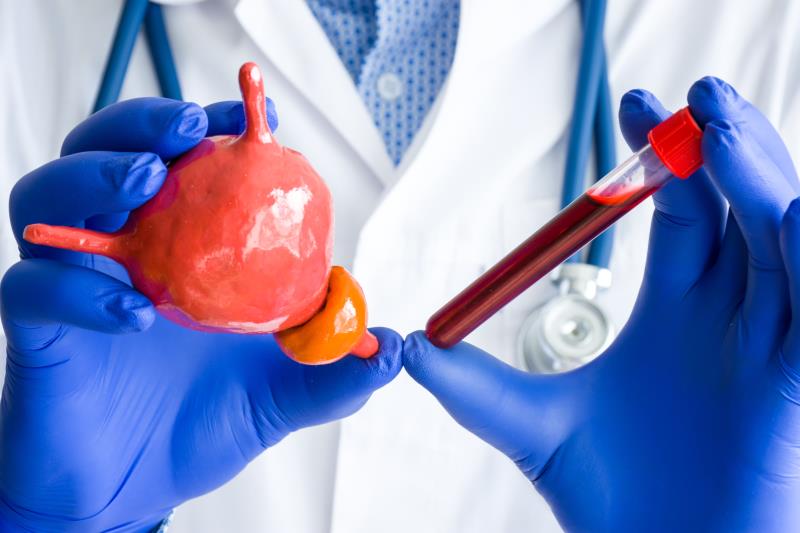
In patients with localized prostate cancer undergoing external beam radiotherapy (EBRT), use of the orally administered androgen deprivation therapy (ADT) relugolix results in rapid and sustained suppression of testosterone to castrate levels, with a tolerable safety profile, according to the results of a phase II trial.
The trial randomized 103 intermediate-risk prostate cancer patients undergoing primary EBRT to 24 weeks of treatment with either once-daily oral relugolix (320 mg loading dose on day 1, and then 120 mg daily thereafter; experimental arm, n=65) or subcutaneous depot degarelix (240 mg loading dose on day 1, and then 80 mg every 4 weeks; control arm, n=38).
Effective castration (testosterone level <1.73 nmol/l) occurred in 95 percent of patients on relugolix and in 89 percent of those on degarelix, while profound castration (testosterone level <0.7 nmol/l) was recorded in 82 percent and 68 percent of patients, respectively. Median time to castration in the experimental arm was 4 days.
During treatment, prostate-specific antigen (PSA) levels and prostate volume decreased on either treatment. Testosterone recovery occurred 3 months following treatment discontinuation in 52 percent of patients in the relugolix arm and in 16 percent in the degarelix arm. Quality of life also improved after cessation of treatment.
The most common adverse event was hot flush, documented in 57 percent of patients on relugolix and in 61 percent of those on degarelix. One potential study limitation was the lack of blinding.
Relugolix is being evaluated in an ongoing global phase III trial, according to the researchers.